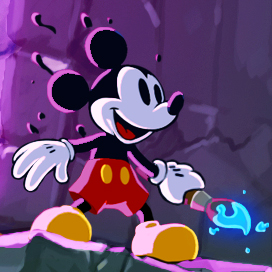 Unrelated but I have the exact same clock pictured in the article … Weird.
Unrelated but I have the exact same clock pictured in the article … Weird.Does it go tock-tick?
I suppose it depends on what part of the clocks action you first wake up during.
No fucking way, it’s exactly the same!
I could only find two differences.
Birds head is tilted different directions and mind has a single door for the cuckoo whereas the pictures one has double doors.
Trying to explain this to non native English speakers at my work is hilarious. It’s a rule that I don’t even know the parameters of. It just is!
What a load of flam-flim.
All that clip-clap and doesn’t say why
Here you go, enjoy!
More specifically look up the term “ablaut reduplication”. There’s lots of great articles and honestly some pretty good YouTube videos on the subject. I’m honestly surprised how great the YouTube linguistics scene is, from Tom Scott’s language files to rob words and name explain (plus nativlang). Hours of infotainment on linguistics for those interested!
I now want to read a small story that actively violates these kind of rules.
I heard that child Tolkien told his mother he’d “written a story about a green, great dragon” and when his mum told him it had to be a “great, green dragon” he was so put off that he didn’t write again for years.
So maybe track down that story?
This is about the most useless thing I will learn all week. Interesting, but utterly useless.
Not if you’re an EFL (English as foreign language) teacher and you needed a way to help your students understand adjective placement better: )
stupid-big-ol-quadratic-yellow-bikinibottom-sponge-fuckin ass
Drake and Josh, Zack and Cody, Rick and Morty
Bout what about Mork and Mindy?
Good question. Maybe they did it deliberately to make it feel more alien and strange? Or maybe there’s another rule about the relative number of syllables (e.g., Tom and Jerry, Jak and Daxter, etc.)
That sounds normal when flipped to me. Swapping Rick and Morty for Morty and Rick sounds wrong but Mindy and Mork still has that right to it. I think they did it on purpose.
This is likely because of the different sound profile(not sure if this is the right word) of the words. Mork ends with a guttural letter that opens up for usage of a relatively open vowel like the “a” in “and”. Also, it’s one syllable, and it should be easier to start with the lower number of syllables and work your way up or at least keep it that count. Mindy, on the other hand, has those two syllables, and ends with a vowel that also I believe, making this up on the spot, shouldn’t open up for possibilities to follow up, which I think is why there’s not just barely quite as much usage for “y” as a vowel too. Add to that that saying “Mork and Mindy” makes ylu naturally slide “O-Æ-I-I’”, gradually opening up. Instead, saying “Mindy and Mork” will make you rather awkwardly jump around less open vowels: it’s stressing your mouth to close more. If you say it like “Mindy 'n Mark” it should be a slight bit easier to say. Finally, and is atonal, I believe, correct me if I’m wrong, and saying “Mork and Mindy” allows Mork to quickly slide to Mindy by merging “and” with “Mork”, whereas Mindy would force you to either pronounce a hiatus, or a glottal stop, forcing you to tonalize “and”, which is suboptimal. There’s many different rules at play than I-A-O. Why did I invest my time making a point through potentially incorrect information.
I was literally just yesterday wondering how to find this again, thanks internet person/strong A.I.
I fucking love linguistics oh my god. This is amazing
You should check out this book: Highly Irregular: Why Tough, Through, and Dough Don’t Rhyme―And Other Oddities of the English Language
It was absolutely fascinating. Who knew there’re very good reasons why English is so messed up?
English is hard, but can be figured out through tough thorough thought though.
This made me laugh. You asshole :)
Thank you for that, straight onto my reading list.
[…] opinion-size-age-shape-colour-origin-material-purpose noun […] if you mess with that word order in the slightest you’ll sound like a maniac.
And if I try to stick to that word order when I’m speaking I’ll sound like an obsessive-compulsive person.
There’s no mystery here. Speech is uttered by bodies. Inhale, exhale, pressure starts high then drops. Muscles tense then release. A thousand muscles in complex patterns working together limits and shapes sound. That is the basis for underlying “rules”.
TICK tock. Your mouth tenses for the first, relaxes in the second.
What about cat nip?
My mom, who learned english later in life always says “nip cat”, maybe unconsciously trying to follow the rule?
It’s because “catnip” is one word.
Anything can be one word if you remove the spaces 🤷♂️
But it started as one word, it wasn’t made into one word later afaik. The words also aren’t interchangeable. The thing being talked about is fundamentally nip, not a cat. In a saying like tick tock, the tick part and tock part are interchangeable. In “big bad” they’re both referring to the wolf so again they’re interchangeable. In this case the “nip” part is the same as the wolf part in “big bad wolf”.
If I were to say wolf nip, you’d think of a version of catnip for wolves. If I were to say nip wolf, you’d think of of a wolf that bites people.
Technically it started as two words… cat + abbreviation of the latin name (nepeta).
I don’t know how i feel about this pedantic argument being my very first contribution to Lemmy, but here we are.
Hallo! Den Deutschen gefällt diese Idee.
This post was brought to you by German Wordglue
But not every thing should be come two words just be cause you have the cap ability to add a space.
Bing bang bong, sing sang song… Ding. Dang. Dong.
deleted by creator
Sounds like BBC has a FLCL fan.










